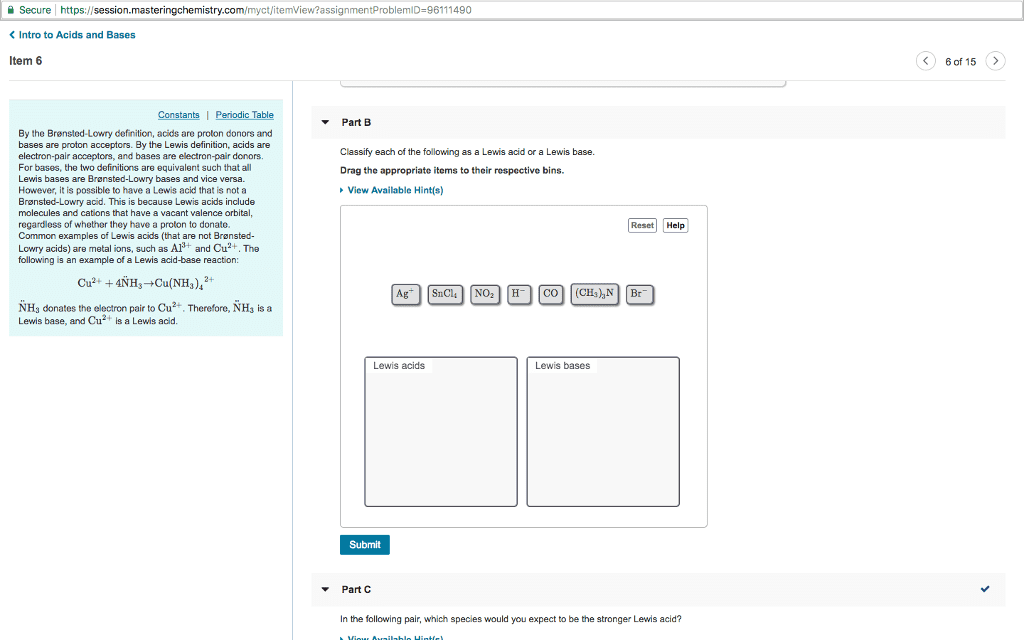Chemistry 1027A/B Chapter Notes -Conjugate Acid, Argon, Covalent Bond
Document Summary
Arrhenius acids: substance that dissolves in water to produce h+ ions. Arrhenius bases: substance that dissolves in water to produce oh- ions. H+ ion does not exist in water because it reacts immediately with h2o molecule to give a hydronium ion (h3o+) Arrhenius reactions tied to reactions that take place in water. Conjugate base: species formed when an acid donates a proton. Conjugate acid: species formed when a base accepts a proton. Neutralization of an acid by a base is a proton-transfer reaction in which the acid is transformed into its conjugate base, and the base is transformed into its conjugate acid. Stronger the acid, the weaker is its conjugate base. Strong acid: acid that is completely ionized in aqueous solution. Strong base: base that is completely ionized in aqueous solution. No tendency for the reverse reaction to occur. Weak acid: acid that only partially ionizes in aqueous solution. Weak base: base that only partially ionizes in aqueous solution.





